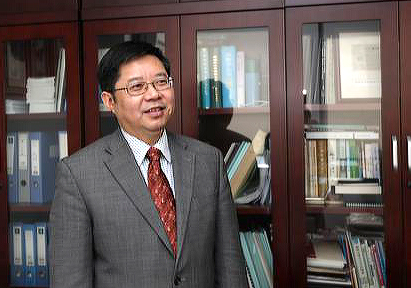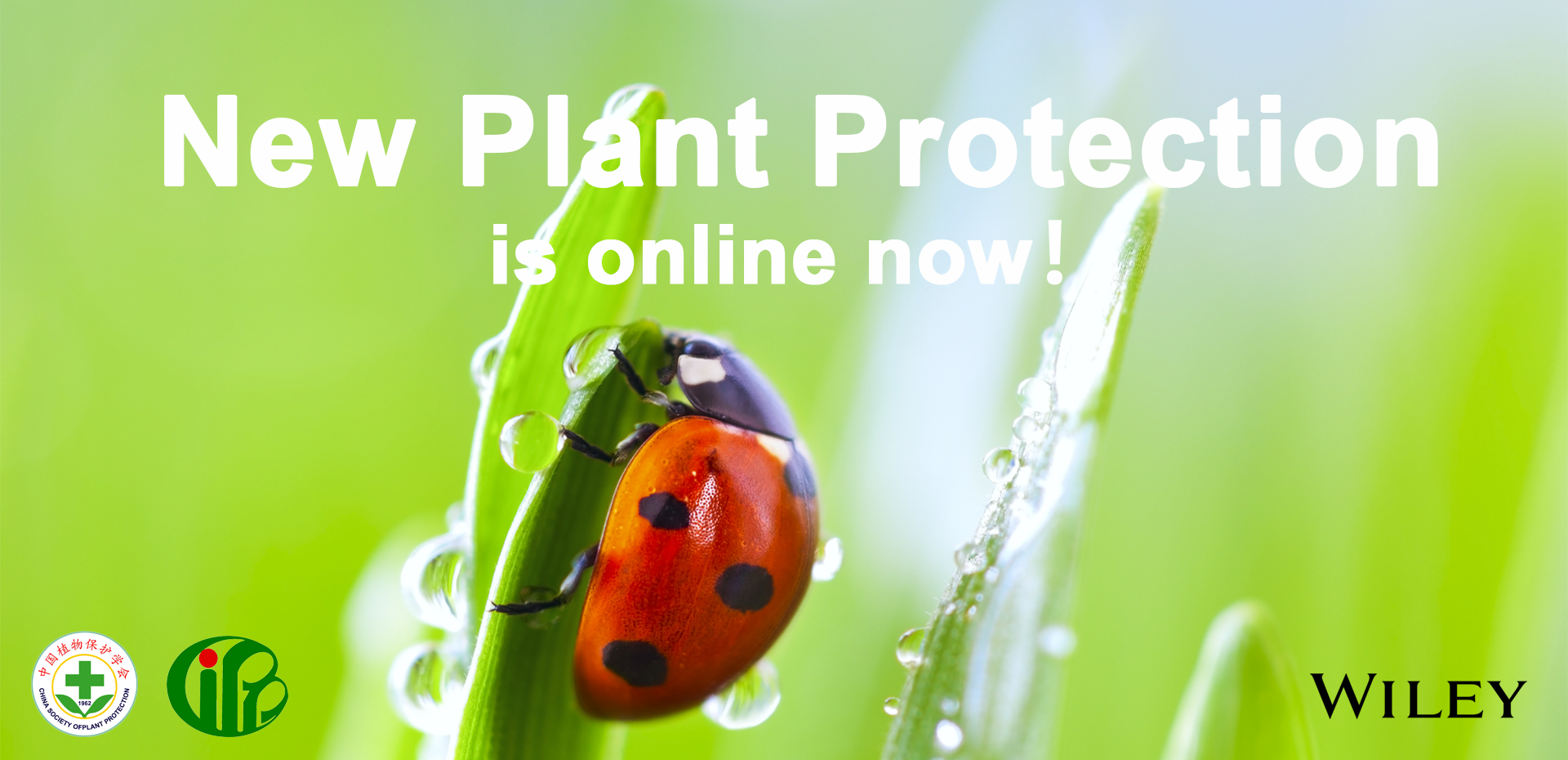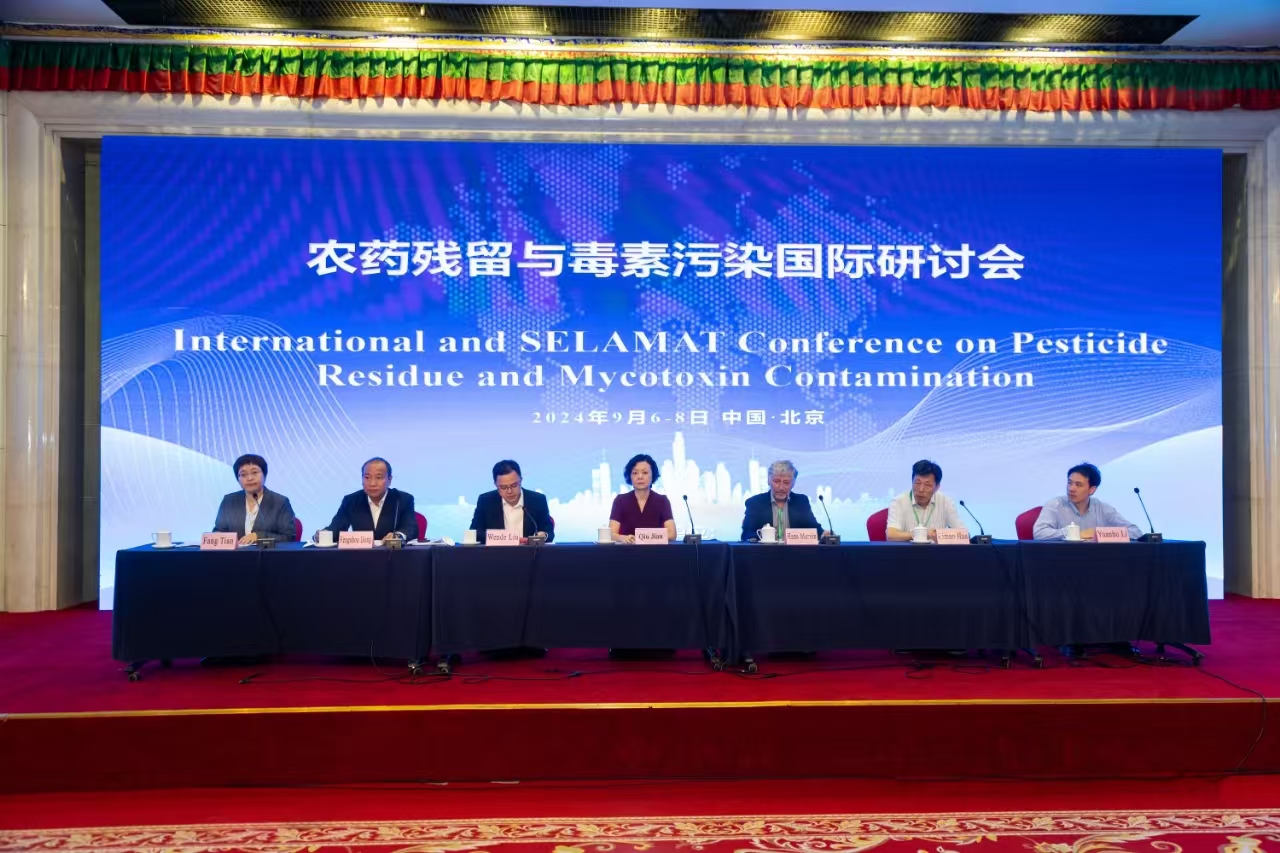SCIENTIA SINICA Vitae published a special issue for the Institute of Plant Protection, Chinese Academy of Agricultural Sciences
 SCIENTICA SINICA Vitae published a special issue, the Issue 5 in Volume 46, 2016, for the Institute of Plant Protection (IPP), Chinese Academy of Agricultural Sciences (CAAS), in the column the Famous Chinese Universities and Research Institutions. Prof. ZHOU Xueping, the Director General of IPP-CAAS, was the invited editor of this issue which introduced the recent research progress made at IPP in the areas of plant pathology, agricultural entomology, pesticide sciences, biological control, invasive biology, weed sciences and biosafety of genetically modified organisms.
SCIENTICA SINICA Vitae published a special issue, the Issue 5 in Volume 46, 2016, for the Institute of Plant Protection (IPP), Chinese Academy of Agricultural Sciences (CAAS), in the column the Famous Chinese Universities and Research Institutions. Prof. ZHOU Xueping, the Director General of IPP-CAAS, was the invited editor of this issue which introduced the recent research progress made at IPP in the areas of plant pathology, agricultural entomology, pesticide sciences, biological control, invasive biology, weed sciences and biosafety of genetically modified organisms.
The Institute of Plant Protection, Chinese Academy of Agricultural Sciences was founded in August 1957. She was established based on formal Department of Plant Disease and Insect Pests and Department of Pesticide Science in North China Institute of Agricultural Sciences and was among the first five research institutes under CAAS. IPP’s departments for the plant disease and insect pest research were transferred to Xinxiang City, Henan Province, in the beginning of 1970 while the department for pesticide research was transferred to Beibei District, Chongqing City. Approved by the State Council of China in 1979, IPP-CAAS was moved back to the original site in Beijing and reorganized. The Division of Microbiology of formal Institute of Atomic Energy Utilization in Agriculture of CAAS and the research groups in the areas of plant protection and biological control in the Institute of Environment and Sustainable Development in Agriculture (IEDA) of CAAS were transferred into IPP successively in 1989 and 2006, respectively. IPP was selected into the first eleven pilot institutes in the Scientific and Technical Innovation Project in CAAS in 2013. IPP was ranked the first place in strength per capita for four consecutive years in the evaluation among the research institutes in CAAS in 2012-2015.
A group of eminent scientists played the role of pathfinders and founders in the history of the Institute. Prof. SHEN Qiyi, one of the founders of plant pathology in China, was appointed as the Director General when the Institute was established in 1957. Prof. SHEN led the whole Institute to construct the disciplines of plant protection and gathered a large group of outstanding scientists. Among them, there were the founders in agricultural entomology, such as WU Fuzhen, ZENG sheng, ZHOU Mingzhang, QIU Shibang and QI Zhaosheng, founders in plant pathology, such as CHEN Shanming and LIN Chuanguang, founders in pesticide sciences, such as WANG Junkui, and founder and pioneer in agricultural antibiotics, such as YIN Xinyun. This laid the foundation of plant protection science in new China. Since then, the Institute has cultivated many outstanding scientists, such as academician of Chinese Academy of Sciences QIU Shibang, and academicians of Chinese Academy of Engineering LI Guangbo, GUO Yuyuan, WU Kongming, etc. The scientific contributions from these outstanding scientists boosted greatly the development of the areas of plant protection in China.
The Institute of Plant Protection has established some core disciplines in CAAS, such as plant pathology, agricultural entomology and control of insect pests, pesticide sciences, weed sciences, invasive biology, biosafety of GMOs and biological control, through the industrious work of generations of scientists. IPP has established 14 national sci-tech innovation platforms consisting of State Key Laboratory for Biology of Plant Diseases and Insect Pests, National Agricultural Biological Security Science Center, the Key Laboratory of Crop Integrated Pest Management (MOA), Center for Management of Invasive Alien Species (MOA), MOA-CABI Joint Laboratory of Bio-safety, Sino-American Biological Control Laboratory, etc. As a national research institution in agriculture, IPP possesses the first level discipline plant protection science and established post-doctor research stations in the relative areas. Today, IPP offers 8 graduate programs for masters’ degree and PhD in plant pathology, agricultural entomology, pesticide sciences, weed sciences, invasive biology, biosafety of GMOs, biological control, and biochemistry and molecular biology.
Currently, there are 236 staffs at IPP. Among them, 220 are scientists or technicians. Among the 220, there are 75 senior scientists, 83 sub-senior scientists, 2 academicians of Chinese Academy of Engineering, 1 introduced scientist through Thousand Talent Program, 5 young scientists who obtained National Science Foundation for Distinguished Young Scholars, 2 Chief Scientists for 973 Program, 2 Chinese Agricultural Talents, 7 Distinguished Talents in Agricultural Research, 3 chosen by New Century Talents Project of China Ministry of Personnel, 2 Top Young Talents selected by the Organization Department of the Central Committee of the CPC, 4 Leading Talents in Sci-Tech Innovation selected by China Ministry of Science and Technology, 3 young scientists who obtained National Science Foundation for Outstanding Young Scholars, and 9 young and middle-aged experts who have outstanding contributions at national or MOA level. Besides, there is an innovative research group funded by National Science Foundation of China, 1 outstanding innovative group awarded for Chinese Agricultural Science and Technology Award, 7 national distinguished research innovative groups, 17 CAAS innovative groups. Such, IPP forms a scientist team with international and domestic influence. The team is headed by academicians and possesses the backbone composed of senior scientists with rich outstanding young scientist reservoir.
Recently, a group of young and middle-aged outstanding scientists came to the fore at IPP, such as the 18 senior scientists who contributed to this issue. They achieved fruitful results in the respective areas of plant pathology, agricultural entomology, pesticide sciences, weed sciences, invasive biology, biosafety of GMOs, biological control, etc.
The free full text of this issue can be downloaded at http://engine.scichina.com/publisher/scp/journal/SSV/46/5?slug=Browse
-
 China-Laos Training Workshop on Integrated Management of Destructive Crop Pests and Diseases Successfully held in Laos
China-Laos Training Workshop on Integrated Management of Destructive Crop Pests and Diseases Successfully held in Laos -
 New Plant Protection: New challenge and new opportunity for plant protection
New Plant Protection: New challenge and new opportunity for plant protection -
 International and SELAMAT Conference on Pesticide Residue and Mycotoxin Contamination Held in Beijing
International and SELAMAT Conference on Pesticide Residue and Mycotoxin Contamination Held in Beijing -
 CAAS President Meets Chairman of ASEAN FAW Taskforce
CAAS President Meets Chairman of ASEAN FAW Taskforce
